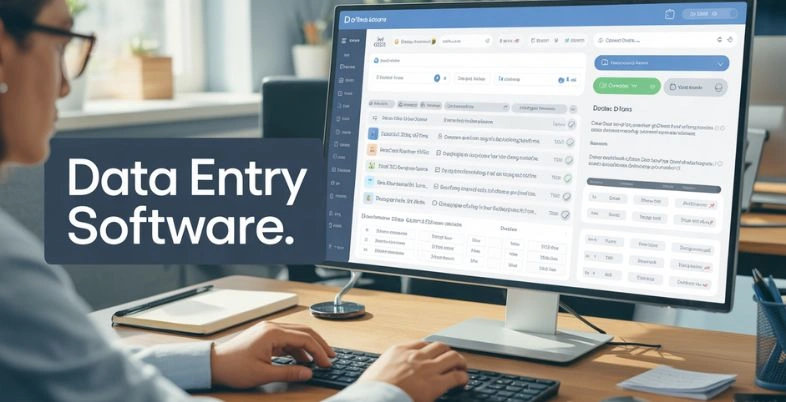In the modern digital age, companies always need to find proper methods to reach out to their users and motivate them to engage with the valuable content. There is a plethora of digital marketing tactics out there, and yet email marketing always remains one of the simplest and highly effective methods of reaching customers in a very direct way. It is easy to use the right email marketing tool that can change the way a business is communicating with its audience and make even simple messages elevated campaigns that convert and establish long-lasting relationships.
Contemporary email marketing technology has developed much beyond a simple newsletter program. The new systems are highly automated with personalization by AI, complex analytics, and integration with other business systems. All of these are meant to help businesses big and small to elaborate professional campaigns, segment their audiences as well, and determine the performance accurately. Whether you are a small startup creating your first email list or a large enterprise running multi-channel campaigns, collaborating with a partner like Awwtomation can help make the most of your email marketing efforts and improve overall ROI.
What is Email Marketing
Email marketing is a focused tactic of digital marketing in which businesses conduct message delivery on a set of supporters via electronic mail. It is a form of marketing which entails development and deployment of valuable materials, offering promotional deals, newsletters, and individual messaging that builds customer relations and business goals. In contrast to social media or even paid advertisement, through email marketing, the business has an opportunity to interact personally with its audience in the inbox of its mailbox, providing an opportunity to get intimate communication and thus positively impact the buying behaviors.
The secret to effective email marketing is the establishment of good subscriber databases, created by means of opt-in procedures whose recipients are interested in communications. This process is aided by today’s email marketing tools, which offer complex signup forms, landing pages, and lead magnets that motivate subscriptions on a voluntary basis. Businesses can also use these platforms to divide their audiences into demographic, behavior patterns, preferences, and engagement patterns and send highly targeted messages that are appealing to a particular group of customers.
Why Email Marketing Remains Critically Important
With the development of new digital marketing channels, email marketing has stayed one of the most important bases of successful business communication strategies and has produced an enormous amount of return on investment and the possibility to directly communicate with customers.
- ROI: Email marketing always gives one of the highest returns on investment activities as compared to other digital marketing activities, with research indicating that it has an average return of 42 dollars marginally spent as compared to one dollar spent; hence extremely cheap method of marketing to businesses.
- Ownership: With emails, companies are no longer at the mercy of other algorithms, and that means that companies have full ownership over their subscriber lists and can connect with their audience directly without any interference by third parties limiting visibility into the mailing list.
- Personalization: Current email services offer more personalization than ever before, so businesses can customise content, delivery, and messages to each subscriber according to their likes and dislikes, buying history, and activity patterns in order to be as relevant as possible.
- Automation: Sophisticated automation capacity enables businesses to build a complex customer event in a business, which leads to nurturing due to precise sequence, recapturing abandoned carts, and engaging customers without the need for continuous personal attention. This automation remarkably enhances sensitivity and efficiency.
- Analytics: In-depth tracking and analytics offer a great deal of insight into the performance of the campaigns, behavior of subscribers, as well as the conversion metrics, which in turn allows making evidence-based choices and constantly adjusting the marketing strategy to achieve improved outcomes.
Essential Features to Look for in Top Email Marketing Tools
Comparing the platforms, it is important to be aware of the main features that make the outstanding email marketing tools shine among the more simplistic ones and make the best choices in the area of long-term business development.
- Automation: There must be a strong automation process that allows the sophisticated mapping of the customer process, event-based messaging, behavioral targeting, and sequential campaign delivery that would guide leads through the sales funnel without the involvement of constant adjustment and supervision by hand.
- Segmentation: Customer segmentation abilities are sophisticated enough to enable narrow specifications on age, sales, involvement, and user-defined attributes such that messages go to the most applicable recipients to make the most impression.
- Templates: Mobile responsive, professionally designed template libraries and drag-and-drop editors offer quick access when building campaigns, with brand consistency and great design across the board on all communication channels and devices.
- Analytics: In-depth reporting dashboards must give analytic support detailing the open rates, click-through rates, conversion tracking, addition of new subscribers, performance of various posts and campaigns to enable data-driven optimization as well as strategic planning.
- Integration: Integration: Integration: there is seamless interconnection with all CRM systems, e-commerce services, social media tools, and other business-related applications, guaranteeing the consistency and synchronization of data and allowing the unification of customer experience control in all touchpoints.
Comparison Table for Email Marketing Tools
| Tool Name | Rating | Best Feature |
| Klaviyo | 4.8/5 | E-commerce Data Integration |
| Mailchimp | 4.7/5 | User-Friendly Interface |
| ActiveCampaign | 4.6/5 | Advanced Automation Workflows |
| HubSpot | 4.5/5 | All-in-One CRM Integration |
| Brevo | 4.4/5 | Affordable Multi-Channel Marketing |
| Omnisend | 4.4/5 | E-commerce Automation Templates |
| Salesforce Marketing Cloud | 4.3/5 | Enterprise-Level Personalization |
| GetResponse | 4.2/5 | Website Building Capabilities |
| MailerLite | 4.1/5 | Simplicity with Power |
| Constant Contact | 4.0/5 | Nonprofit and Small Business Focus |
Top 10 Email Marketing Tools
1. Klaviyo

Rating: 4.8/5
Website: https://www.klaviyo.com
Best Use Cases: E-commerce personalization and data-driven campaigns
Klaviyo is the best option when looking forward to excellent data involvement and personalization with regard to e-commerce enterprises. It is an excellent platform upon which real-time customer behavior and buying information are used to execute highly relevant campaigns, including Magento follow-up email automation, to generate increased revenue. It is well combined with other main e-commerce providers such as Shopify and Magento and allows companies to get a complete overview of the customer, such as search history or buying habits, and their activities.
The machine learning algorithms of Klaviyo perform the optimization of send times and content recommendations automatically, and the advanced segmentation tool of Klaviyo enables the precise targeting of an audience according to the customer lifetime value, purchasing frequency, and product preference. Thus Klaviyo is priceless in terms of customer retention and average order value maximization.
Key Features:
- E-commerce platform integrations
- Behavioral trigger automation
- Advanced customer segmentation
- Revenue tracking analytics
- Personalized product recommendations
Pros:
- Powerful data analytics
- E-commerce optimization features
- Advanced personalization capabilities
Cons:
- Steep learning curve
- Higher pricing tiers
- Complex interface navigation
Klaviyo pricing: Free plan for up to 250 contacts; paid plans start at $20/month for 500 contacts
2. Mailchimp

Rating: 4.7/5
Website: https://mailchimp.com
Best Use Cases: Small to medium businesses seeking user-friendly marketing automation
Mailchimp has long been one of the most feasible and all-inclusive email marketing platforms, an ideal fit in case a company wants the simplest to-use email promoting platform that doesn’t forfeit vitality. Campaigns can easily be created using the drag-and-drop editor and the large template library of the platform, and its AI-driven functions offer smart suggestions on content and optimization tips.
There are more than 300 integrations, which help Mailchimp to fit well with some of the most commonly used business tools with an impressive 98 percent delivery rate. The platform determines the segmentation of its audiences, as well as A/B testing allows companies to perfect their messaging strategy, and in-platform analytics give them actionable insights into the future improvement of campaigns. The Freemium pricing is extremely appealing to start-ups and small businesses that want to get their feet wet in email marketing. As their needs expand, many businesses eventually look for a best Mailchimp alternative that offers more room to grow.
Key Features:
- Drag-and-drop email editor
- AI content optimization
- Comprehensive integration library
- Advanced audience segmentation
- Built-in analytics dashboard
Pros:
- User-friendly interface design
- Extensive integration options
- AI-powered content suggestions
Cons:
- Limited advanced features
- Pricing increases significantly
- Restricted automation capabilities
Pricing: Free plan for up to 500 contacts; paid plans start at $13/month for 500 contacts
3. ActiveCampaign

Rating: 4.6/5
Website: https://www.activecampaign.com
Best Use Cases: Advanced automation workflows and comprehensive customer journey mapping
ActiveCampaign is a standalone representation of email marketing prowess and advanced automation tools and should, therefore, be the ideal email marketing solution to businesses that want to design an elaborate customer experience. The advantage of the platform is that it has already developed automation processes that enable nurturing leads, reengaging inactive customers, and convincing customers to purchase with minimum human intervention.
It has sophisticated segmentation capabilities that leverage machine learning ideas to detect the best targeting opportunities and multi-channel, whose automation is not confined to email but also reaches SMS and social media points. The ability to manage customer relationships is a full-service CRM that offers businesses the power to monitor every customer interaction through all channels through ActiveCampaign. The unique modeling of attribution and in-depth reporting allows the business to know the entire customer journey and make their marketing funnel as efficient as possible.
Key Features:
- Visual automation builder
- Multi-channel campaign management
- Machine learning insights
- Integrated CRM functionality
- Advanced lead scoring
Pros:
- Powerful automation capabilities
- Comprehensive CRM integration
- Multi-channel marketing support
Cons:
- Complex feature set
- Higher learning curve
- Limited template variety
Pricing: Plans start at $15/month for up to 500 contacts
4. HubSpot

Rating: 4.5/5
Website: https://www.hubspot.com
Best Use Cases: Enterprises needing integrated CRM and marketing automation solutions
HubSpot provides an extensive marketing environment neatly integrated into email marketing and combined with sales and customer service tools, which means that it would perform a good job at suiting the needs of enterprises that want to manage their customers in terms of their experience as a whole. The advantage of this platform is its capacity to deliver individualized, data-informed programs that take in-depth customer profiles created throughout a variety of contacts.
The high level of automation that HubSpot offers allows it to implement advanced marketing processes, and the deep insights included in HubSpot analytics help to understand campaign performance and customer behavior tendencies. This scalability of the platform is quite apt in growing businesses, which require their marketing tools to scale as their requirements grow. HubSpot Sales and Service integrations also enable a smooth and fluid customer experience journey all the way through buying to support after they make a purchase, but the email marketing capabilities might seem inadequate in the case of businesses that need features exclusive to email use.
Key Features:
- Integrated CRM platform
- Advanced marketing automation
- Comprehensive customer analytics
- Multi-channel campaign management
- Sales and service integration
Pros:
- All-in-one business platform
- Seamless tool integration
- Comprehensive customer insights
Cons:
- Limited standalone features
- Higher cost structure
- Complex implementation process
Pricing: Free plan available; paid plans start at $45/month for 1,000 contacts
5. Brevo (Sendinblue)

Rating: 4.4/5
Website: https://www.brevo.com
Best Use Cases: Small businesses requiring affordable multi-channel marketing solutions
The Brevo becomes one of the outstanding value offerings, especially among the smallest businesses with a specific necessity of marketing capabilities without burdening their budget. It is a one-stop tool having email marketing, SMS marketing, in-built CRM modules, which offer end-to-end customer relationship management at an affordable rate.
The segmentation capabilities and automation tools of the platform are advanced enough to include small startups to big enterprises, but the platform is straightforward to carry out without any complicated setups. The first advantage of Brevo is that it offers high-performance marketing automation features at affordable costs, democratizing access to advanced marketing strategy to time- and investment-limited businesses. Although it may not equal dedicated solutions in the model library and CRM features, the Brevo has enough features to fulfill the needs of a majority of small as well as medium-sized businesses.
Key Features:
- Multi-channel marketing platform
- Built-in CRM system
- Marketing automation workflows
- SMS marketing capabilities
- Advanced segmentation tools
Pros:
- Affordable pricing structure
- Multi-channel campaign support
- User-friendly interface design
Cons:
- Limited template options
- Basic CRM functionality
- Fewer advanced features
Pricing: Free plan for up to 300 emails daily; paid plans start at $8.08/month
6. Omnisend

Rating: 4.4/5
Website: https://www.omnisend.com
Best Use Cases: E-commerce businesses focusing on conversion optimization and automation
Omnisend is a company that caters to e-commerce retailers offering pre-built automation workflows to generate revenue and customer recruitment. The platform is the best at establishing cart recovery advertising, product suggestion email, and personalized selling progression that facilitate conversions. Its smooth compatibility with most e-commerce companies such as Shopify and WooCommerce allows retrieval of all customer information, hence executing a hyper-personalized revenue-generating campaign.
The prebuilt automation templates offered by Omnisend are directly connected to the solutions of the most common challenges of the e-commerce business, and online retailers can put an established strategy in place in a short amount of time. Customers rate the easy-to-use interface of the platform highly, whereas other businesses are confused by the system of billing. Omnisend offers a great degree of e-commerce competencies mixed with user-friendliness to small to medium-sized online retailers.
Key Features:
- E-commerce automation workflows
- Cart abandonment recovery
- Product recommendation engines
- Multi-channel messaging capabilities
- Revenue tracking analytics
Pros:
- E-commerce specialized features
- Easy implementation process
- Effective automation templates
Cons:
- Confusing billing options
- Limited customization flexibility
- E-commerce focus limitation
Pricing: Free plan for up to 500 emails monthly; paid plans start at $16/month
7. Salesforce Marketing Cloud Engagement

Rating: 4.3/5
Website: https://www.salesforce.com/products/marketing-cloud/
Best Use Cases: Enterprise-level personalization and comprehensive campaign management
The Salesforce Marketing Cloud Engagement is the ultimate destination in enterprise email marketing, providing an email marketing experience with unmet personalization and delivering an end-to-end campaign management experience. This platform is superior when it comes to the utilization of artificial intelligence to optimize email marketing, as it makes use of real-time information to make well-informed complex marketing decisions.
The content creation features available in the system have reusable blocks of text, HTML, image, button, and dynamic content to allow maximum customisation across mass campaigns. B/A testing options and capability and snippet integration allow enterprises the freedom to personalize experiences in a very sophisticated way. The unified dashboard in the platform offers all the details of the campaign performance, including contact health analytics to message delivery analytics, which is beneficial to organizations that demand detailed reporting and analytical features for complex, multi-dimensional marketing campaigns.
Key Features:
- AI-powered personalization engine
- Reusable content blocks
- Advanced A/B testing
- Real-time data integration
- Comprehensive analytics dashboard
Pros:
- Enterprise-grade scalability
- Advanced AI features
- Comprehensive reporting tools
Cons:
- Complex implementation requirements
- High cost structure
- Steep learning curve
Pricing: Custom pricing based on requirements; typically starts at $1,250/month
8. GetResponse

Rating: 4.2/5
Website: https://www.getresponse.com
Best Use Cases: Multi-functional marketing with website building and conversion optimization
GetResponse can be singled out in being the only email marketing platform that provides not only a wide range of email functionality but also website construction services and monetization options. It is a multifunctional platform that unites the advantages of email marketing automation and provides the creation of landing pages and a conversion funnel, assisting companies that need an exclusive marketing system.
The interface of the platform is straightforward, and people have a responsive customer support team to help them in times of need. It also allows advanced customer journeys mapping through its marketing automation. The advantage of GetResponse is that it offers various marketing features on one platform, so you have all of them in one tool, and you have fewer tools to navigate as well. Nevertheless, not all enterprise customers are happy with the platform, realizing that it can have more advanced features to address more complex organizational needs.
Key Features:
- Website builder integration
- Marketing automation workflows
- Landing page creator
- Conversion funnel tools
- Content monetization features
Pros:
- Multi-functional platform capabilities
- Excellent customer support
- User-friendly interface design
Cons:
- Limited advanced features
- Basic customization options
- Enterprise functionality gaps
Pricing: Plans start at $19/month for up to 1,000 contacts
9. MailerLite

Rating: 4.1/5
Website: https://www.mailerlite.com
Best Use Cases: Simple yet powerful marketing for small businesses and startups
The SMEs that focus on how easily the product can be used despite the access to comprehensive marketing tools will find MailerLite at the right place because it has a good harmony between simplicity and functionality. The drag-and-drop editor and a large library of templates with more than 150 templates allow creating campaigns in a short amount of time, whereas complex automations offer a high level of marketing functionality.
Such features as built-in customer support tools, creation of landing pages, pop-ups, and automated email sequences make MailerLite quite complex so that smaller enterprises and start-ups could easily set up the audience and develop it. With an emphasis on user-friendliness, it is important to note that even the smallest business can learn to employ successful email advertising methods using the platform with no need for technical skills and resources; however, bigger companies might not find the platform efficient enough to make more than a simple marketing campaign.
Key Features:
- Drag-and-drop email editor
- 150+ professional templates
- Advanced automation options
- Landing page builder
- Pop-up creation tools
Pros:
- Extremely user-friendly interface
- Comprehensive template library
- Affordable pricing structure
Cons:
- Limited enterprise features
- Basic analytics capabilities
- Fewer integration options
Pricing: Free plan for up to 1,000 subscribers; paid plans start at $9/month
10. Constant Contact

Rating: 4.0/5
Website: https://www.constantcontact.com
Best Use Cases: Nonprofit organizations and small businesses seeking multi-channel engagement
Constant Contact mainly serves nonprofits and small businesses with unique features used to generate good relationships with its audiences through various channels. Its user-friendly dashboard and templates that could be customized would allow a user with different technical ability levels to create a campaign, and well-developed list separation tools could allow a user to target an audience effectively. Its exclusive abilities, such as internalized event management and tracking and fund records, make it especially useful to nonprofit entities and community-centered companies.
Abilities to integrate social media enable organizations to use consistent messaging in various platforms, which makes the marketing campaigns cohesive and ensures that important messages are reinforced. Although the platform is easy to use and has a steep learning curve, its features are not as customizable as other, more flexible platforms, so it is more appropriate to organizations with simple marketing requirements.
Key Features:
- Event management tools
- Donation tracking capabilities
- Social media integration
- Advanced list segmentation
- Customizable template library
Pros:
- Nonprofit-friendly features
- Easy learning curve
- Multi-channel integration support
Cons:
- Limited customization options
- Basic automation features
- Fewer advanced analytics
Pricing: Plans start at $12/month for up to 500 contacts
How to Maximize Your Output with Email Marketing Tools
Effective exploitation of these mediums calls on strategy in implementation and commitment to constant optimization in order to obtain the highest level of investment and retention in the event of all marketing activities.
- Automation: Practice complete automation of the workflows to cultivate prospective customers methodically, retrieve abandoned purchasing courses, greet new subscription customers, and ensure regular contact without human intervention, providing the possibility to deliver the message to the target audience in a timely and relevant manner.
- Segmentation: To provide highly specific content with a high conversion rate, use a more advanced audience segmentation according to its demographics, behavior trends, past purchases, and levels of interaction with the content.
- Testing: Test on a consistent A/B basis subject lines, different types of content, send times, and call-to-action buttons to determine the best components of a campaign and to occupy and constantly advance performance metrics and subscriber response.
- Analytics: Track such metrics as open rates, click-through rates, conversion tracking, and growth of subscribers to make data-based decisions and make future campaigns better and with improved ROI.
- Integration: Connect your email marketing software and products to CRM solutions, e-commerce services, and other business applications to make data consistent and provide seamless customer interactions in all channels and points of contact.
How to Choose the Right Email Marketing Tools
The likelihood of success and the ability to grow further depend on how you choose the most appropriate platform and decide that with the consideration of your unique business needs, growth goals, and technical requirements.
- Budget: compare the pricing systems such as monthly rates, quantity of contacts, number of features, and extra charges so that you can apply the platform without surpassing your marketing budget to find the required system of functionality now and in the future.
- Functionality: Evaluate the necessary features including complexity of automation, integration, template range, level of analytics, and scalability opportunities so that the platform can support your particular marketing tactics and business goals.
- Scalability: When looking at the platform, think of how it will scale with your business with growth in contact limits, features, access to APIs, and support at an enterprise level to prevent the need for migration to another platform as your organization grows and sizes up.
- Integration: Check the conformance with existing business tools such as CRM systems, e-commerce platforms, analytics tools, social media management systems to have the bi-directional data flow and as well as the customer experience management aspect across all the channels.
- Support: Check the support options offered to customers such as response time, the quality of knowledge base, training material, and onboarding service so that you can maximize your platform usage and fix problems easily when they occur.
Conclusion
The email marketing toolset is ever-changing, and businesses have more opportunities than ever before to reach their audiences with fully data-driven campaigns with deep features. During this in-depth review, we have discussed ten outstanding platforms, which possess very different powers to meet most business needs and marketing goals. As varied as Klaviyo’s e-commerce slant, Mailchimp’s simple usability, ActiveCampaign automation chops, and the HubSpot integrated platform, these email marketing systems are the technological vanguard of digital marketing.
Frequently Asked Questions
Q1: How do I know what features are the most important to find in the email marketing tools?
Key capabilities involve features of automation workflows, audience segmentation, mobile-responsive templates, sophisticated analytics, and features of integration with the existing systems in business.
Q2: What are the estimates of the cost to small businesses in email marketing tools?
Small businesses also have John W. Brattain, as it is a free plan, and they can anticipate spending anywhere between 10-50 dollars a month on its basic paid functionality, adjusting according to the number of subscribers and functionality needs.
Q3: Do e-mail marketing tools work with e-commerce websites?
Indeed, the majority of contemporary platforms have the ability to be integrated flawlessly with the most common e-commerce solutions, such as Shopify, WooCommerce, and Magento, to better utilize customer data and automate work.
Q4: How do the simple and sophisticated email marketing tools differ?
The advanced platform provides complex automation, optimization powered by AI, advanced analytics, rich integrations, and enterprise features, whereas the basic tools are limited to simple creation and sending of campaigns.
Q5: How will I know my successes in email marketing?
Some of the vital metrics to measure the performance and scope of optimization of the campaign are open rate, click-through rate, conversion rate, developing subscription, rev share, and general ROI.






